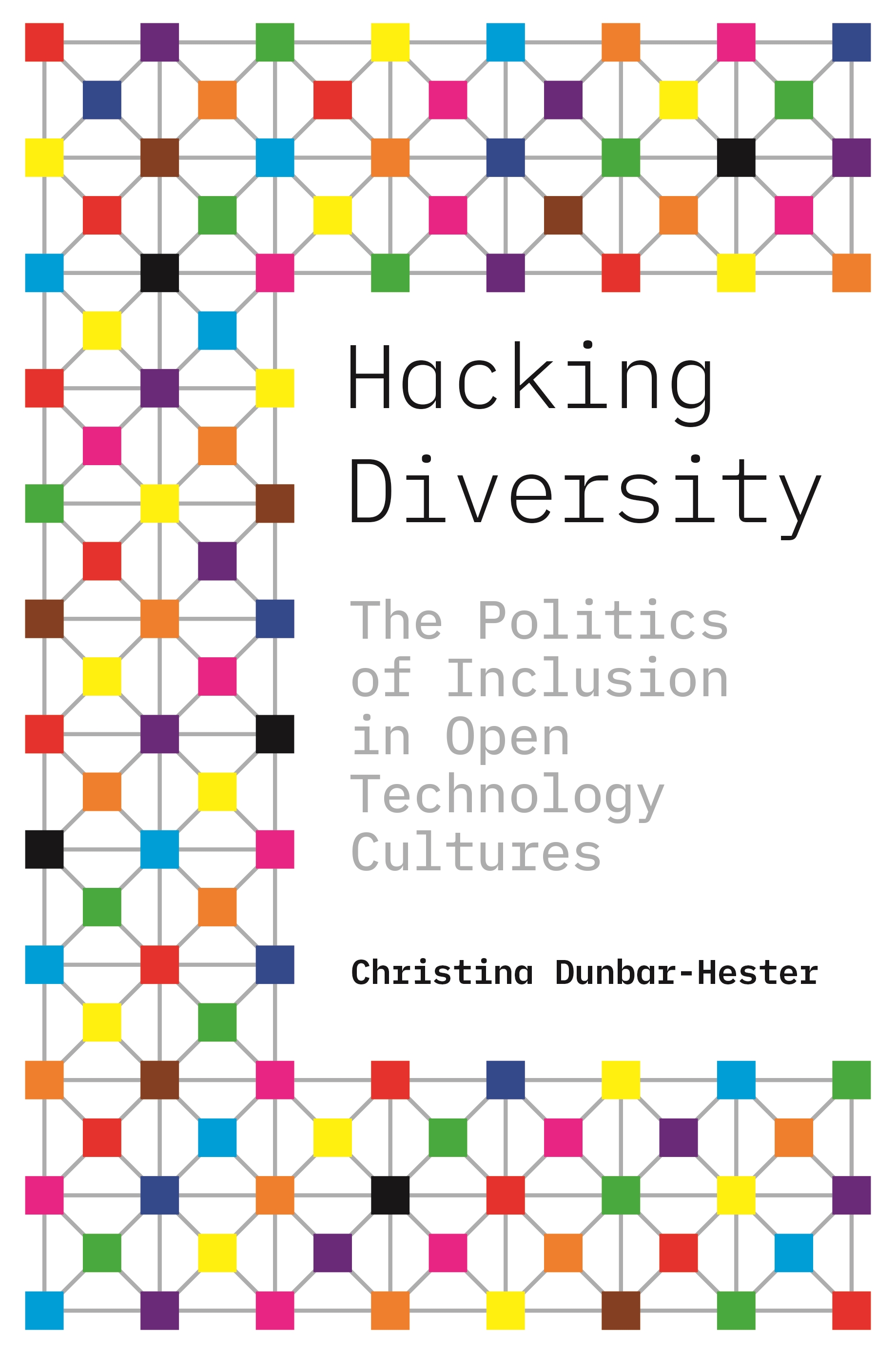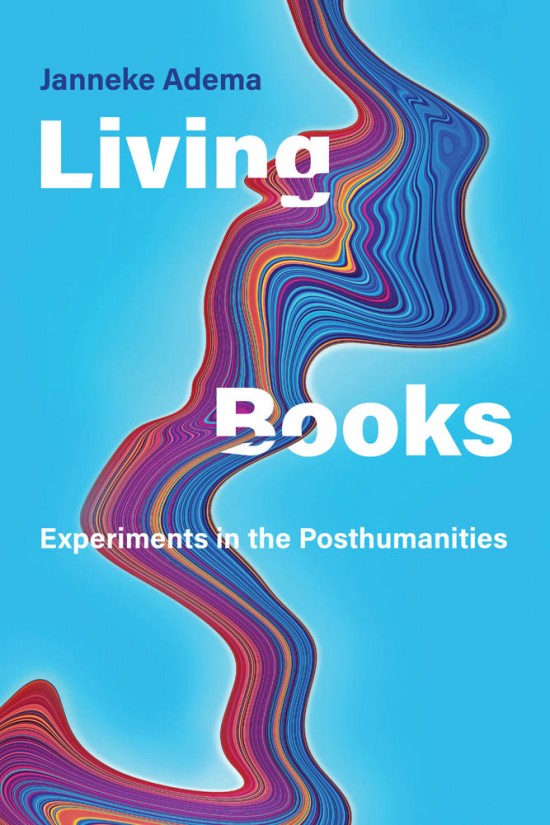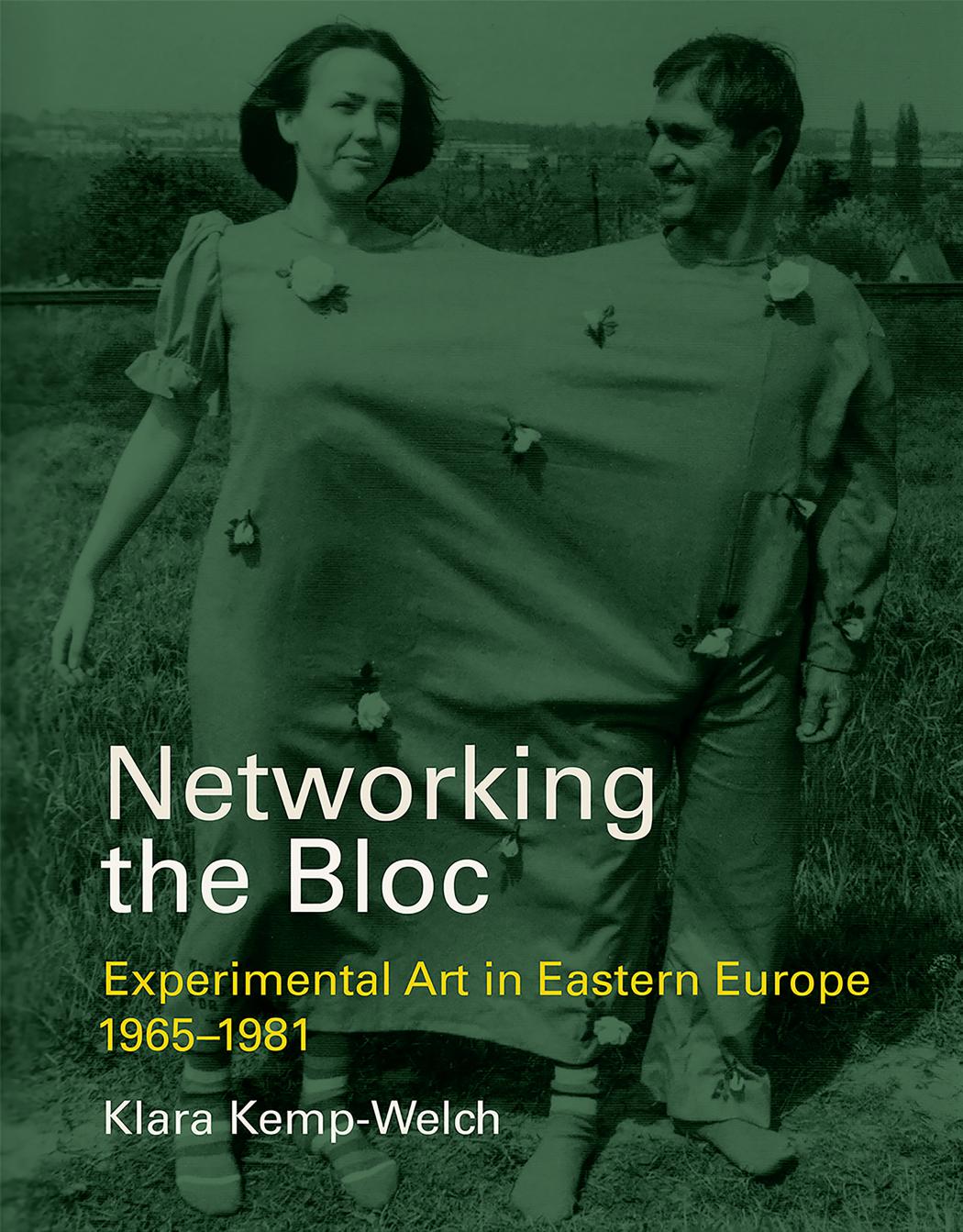Christina Dunbar-Hester: Hacking Diversity: The Politics of Inclusion in Open Technology Cultures (2020)
Filed under book | Tags: · care, community, computing, diversity, diy, ethnicity, feminism, floss, gender, hacker culture, hackerspace, hacking, identity, open source, openness, participation, politics, queer, race, technology, women

“A firsthand look at efforts to improve diversity in software and hackerspace communities.
Hacking, as a mode of technical and cultural production, is commonly celebrated for its extraordinary freedoms of creation and circulation. Yet surprisingly few women participate in it: rates of involvement by technologically skilled women are drastically lower in hacking communities than in industry and academia. Hacking Diversity investigates the activists engaged in free and open-source software to understand why, despite their efforts, they fail to achieve the diversity that their ideals support.
Christina Dunbar-Hester shows that within this well-meaning volunteer world, beyond the sway of human resource departments and equal opportunity legislation, members of underrepresented groups face unique challenges. She brings together more than five years of firsthand research: attending software conferences and training events, working on message boards and listservs, and frequenting North American hackerspaces. She explores who participates in voluntaristic technology cultures, to what ends, and with what consequences. Digging deep into the fundamental assumptions underpinning STEM-oriented societies, Dunbar-Hester demonstrates that while the preferred solutions of tech enthusiasts—their “hacks” of projects and cultures—can ameliorate some of the “bugs” within their own communities, these methods come up short for issues of unequal social and economic power. Distributing “diversity” in technical production is not equal to generating justice.
Hacking Diversity reframes questions of diversity advocacy to consider what interventions might appropriately broaden inclusion and participation in the hacking world and beyond.”
Publisher Princeton University Press, 2020
Princeton Studies in Culture and Technology series
ISBN 9780691182070, 0691182078
xi+271 pages
Reviews: Jenna P. Carpenter (Tech & Society, 2021), Rebecca Ortenberg (Lady Science, 2020), Samantha Shorey (International Journal of Communication, 2020).
EPUB (updated on 2022-8-29)
PDF (added on 2022-12-12)
Janneke Adema: Living Books: Experiments in the Posthumanities (2021)
Filed under book | Tags: · archive, authorship, book, collaboration, community, copyright, hypertext, media, neoliberalism, open access, openness, print, publishing, scholarship, university, versioning, wiki

“Reimagining the scholarly book as living and collaborative—not as commodified and essentialized, but in all its dynamic materiality.
In this book, Janneke Adema proposes that we reimagine the scholarly book as a living and collaborative project—not as linear, bound, and fixed, but as fluid, remixed, and liquid, a space for experimentation. She presents a series of cutting-edge experiments in arts and humanities book publishing, showcasing the radical new forms that book-based scholarly work might take in the digital age. Adema’s proposed alternative futures for the scholarly book go beyond such print-based assumptions as fixity, stability, the single author, originality, and copyright, reaching instead for a dynamic and emergent materiality.
Adema suggests ways to unbind the book, describing experiments in scholarly book publishing with new forms of anonymous collaborative authorship, radical open access publishing, and processual, living, and remixed publications, among other practices. She doesn’t cast digital as the solution and print as the problem; the problem in scholarly publishing, she argues, is not print itself, but the way print has been commodified and essentialized. Adema explores alternative, more ethical models of authorship; constructs an alternative genealogy of openness; and examines opportunities for intervention in current cultures of knowledge production. Finally, asking why it is that we cut and bind our research together at all, she examines two book publishing projects that experiment with remix and reuse and try to rethink and reperform the book-apparatus by taking responsibility for the cuts they make.”
Publisher MIT Press, August 2021
Leonardo series
Creative Commons BY-NC 4.0 International License
ISBN 9780262046022, 0262046024
xiii+335 pages
Interview with author: Erzsébet Tóth-Czifra (Dariah Open, 2021).
Comment (0)Klara Kemp-Welch: Networking the Bloc: Experimental Art in Eastern Europe 1965-1981 (2019)
Filed under book | Tags: · 1960s, 1970s, art history, avant-garde, central europe, cold war, collaboration, community, conceptual art, documentation, east-central europe, eastern europe, experimental art, language, mail art, neo-avant-garde, networks, performance art

“Throughout the 1970s, a network of artists emerged to bridge the East-West divide, and the no less rigid divides between the countries of the Eastern bloc. Originating with a series of creative initiatives by artists, art historians, and critics and centered in places like Budapest, Poznań, and Prague, this experimental dialogue involved Western participation but is today largely forgotten in the West. In Networking the Bloc, Klara Kemp-Welch vividly recaptures this lost chapter of art history, documenting an elaborate web of artistic connectivity that came about through a series of personal encounters, pioneering dialogues, collaborative projects, and cultural exchanges. Countering the conventional Cold War narrative of Eastern bloc isolation, Kemp-Welch shows how artistic ideas were relayed among like-minded artists across ideological boundaries and national frontiers.
Much of the work created was collaborative, and personal encounters were at its heart. Drawing on archival documents and interviews with participants, Kemp-Welch focuses on the exchanges and projects themselves rather than the personalities involved. Each of the projects she examines relied for its realization on a network of contributors. She looks first at the mobilization of the network, from 1964 to 1972, exploring five pioneering cases: a friendship between a Slovak artist and a French critic, an artistic credo, an exhibition, a conceptual proposition, and a book. She then charts a series of way stations for experimental art from the Soviet bloc between 1972 and 1976—points of distribution between studios, private homes, galleries, and certain cities. Finally, she investigates convergences—a succession of shared exhibitions and events in the second half of the 1970s in locations ranging from Prague to Milan to Moscow. Networking the Bloc, Kemp-Welch invites us to rethink the art of the late Cold War period from Eastern European perspectives.”
Publisher MIT Press, 2019
ISBN 9780262038300, 0262038307
xi+468 pages
Reviews: Cristian Nae (ARTMargins, 2019), Denisa Tomkova (H-Net, 2020), Henry Meyric Hughes (Critique d’art, 2020).
PDF (17 MB)
Comment (0)
